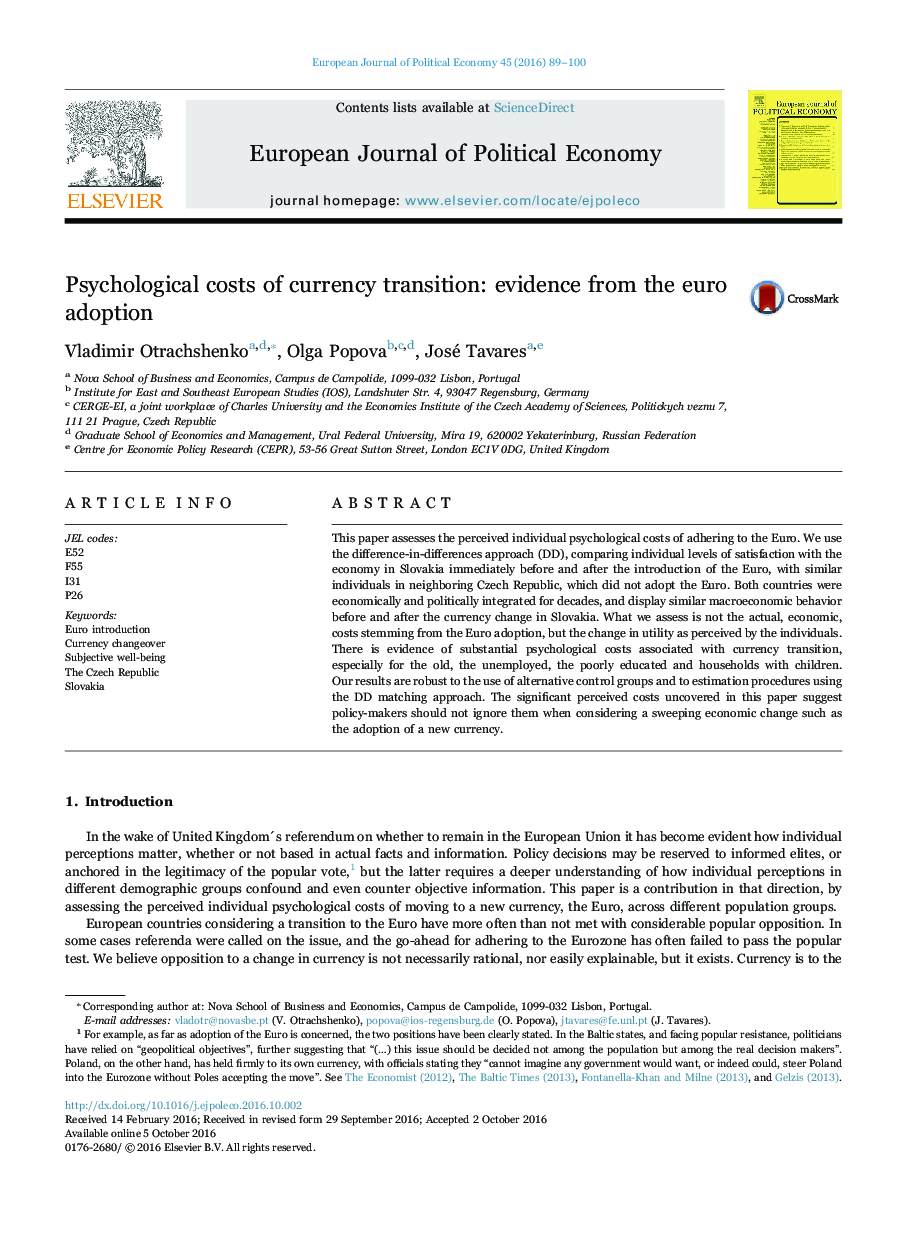| Article ID | Journal | Published Year | Pages | File Type |
|---|---|---|---|---|
| 5067836 | European Journal of Political Economy | 2016 | 12 Pages |
â¢We assess the individual psychological costs due to the Euro adoption in Slovakia.â¢We apply the diff-in-diff approach, using the Czech Republic as a control, which did not adopt the Euro.â¢There are substantial psychological costs associated with currency transition.â¢The old, the unemployed, the low educated, and families with children suffer the most.â¢The results are robust to different specifications and estimation methods.
This paper assesses the perceived individual psychological costs of adhering to the Euro. We use the difference-in-differences approach (DD), comparing individual levels of satisfaction with the economy in Slovakia immediately before and after the introduction of the Euro, with similar individuals in neighboring Czech Republic, which did not adopt the Euro. Both countries were economically and politically integrated for decades, and display similar macroeconomic behavior before and after the currency change in Slovakia. What we assess is not the actual, economic, costs stemming from the Euro adoption, but the change in utility as perceived by the individuals. There is evidence of substantial psychological costs associated with currency transition, especially for the old, the unemployed, the poorly educated and households with children. Our results are robust to the use of alternative control groups and to estimation procedures using the DD matching approach. The significant perceived costs uncovered in this paper suggest policy-makers should not ignore them when considering a sweeping economic change such as the adoption of a new currency.
